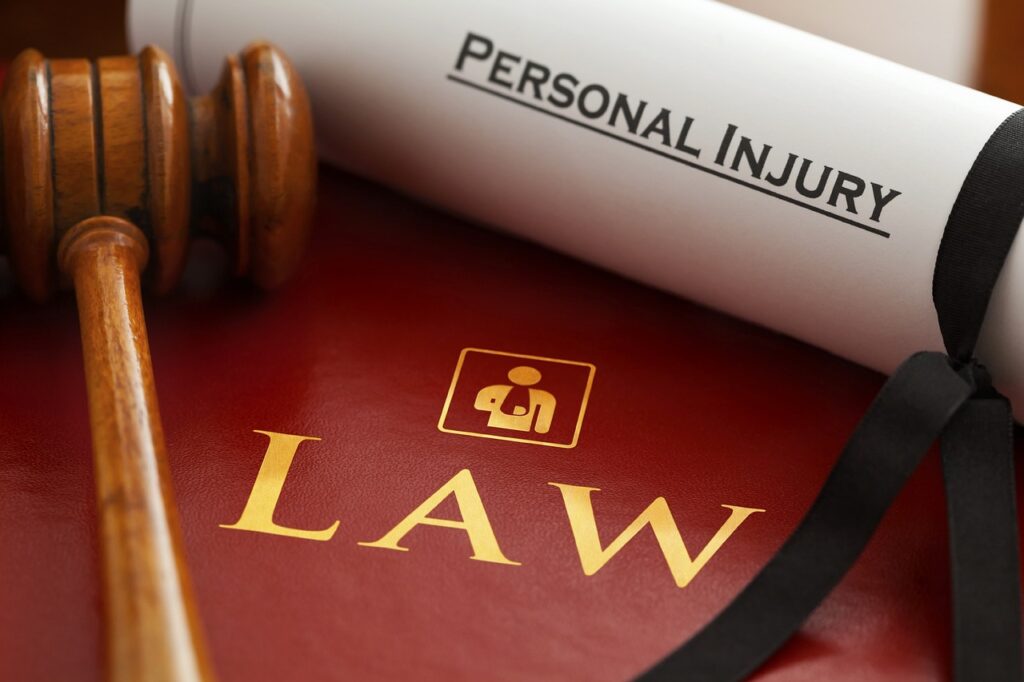
Personal injury represents a whole range of legal issues. I won’t bore you with a deep dive discussion, but it is important to understand the basic types of personal injury issues in Massachusetts and what your rights are in each.
Types of Personal Injury in Massachusetts
Massachusetts law governs personal injury claims. These laws help Massachusetts residents who’ve been injured collect the money owed to them because of an injury. Perhaps the most common type of personal injury results from automobile injuries…see G.L. c.231 s.6D.
Other types of personal injury include slip and fall accidents, medical malpractice, defective products, and workplace injury.
Who is liable in a Personal Injury Claim?
It is the legal responsibility which one party owes to another party, that is, who is ultimately liable for personal injury that matters in any legal case. When someone causes harm to another person in Massachusetts, even when negligently, or accidentally, the party causing the harm may owe damages to the victim. Damages in a personal injury claim may include paying for medical bill, wages lost during recuperation from the injury, pain and suffering, even loss of consortium and other damages.
Elements of a Massachusetts Personal Injury Claim
If you have suffered an injury from a motor vehicle accident, accident on the job, or for any other reason, your attorney will want to establish the following elements of a successful Personal Injury claim:
- Duty of Care: For liability to attach to a defendant in a personal injury claim, the defendant (the person alleged to have caused the injury must first owe what is understood as a duty of care to the Plaintiff. Here, a duty of care refers to the conduct that the defendant is obliged to use. For example, when driving a car on the road, the driver of the car has a duty to operate that car (a duty of care) safely on the road.
- Breach of Duty: When that duty is breached, the driver or a car / owner of the business / etc., may be liable for any injury caused to a Massachusetts resident. In order for liability to attach to the defendant, they must have breached that duty through either reckless or negligent conduct. Driving while intoxicated, or even minor breaches such as operating the motor vehicle without proper lights, etc., could be considered a breach of duty under Massachusetts personal injury law.
- Causation: Causation, under Massachusetts personal injury law, refers to the connection between the actions of the defendant and the injuries suffered by the plaintiff. If the plaintiff, or the victim, is able to prove that their harm was caused directly due to the negligence of the defendant, that defendant may be liable for the defendant’s injuries.
- Damages: Another key element in a personal injury case in Massachusetts is that the defendant must have suffered damages, actual damages as a direct result of the injury – these damages may include medical bills, loss of wages, other financial losses, emotional distress and of course, physical injuries.
Massachusetts Comparative Negligence Rule and Shared Responsibility
Under Massachusetts law, when an injured party shares some of the responsibility for their own injury, they will be compensated by a Massachusetts court proportional to their degree of fault. So, a personal injury attorney will attempt to prove, on behalf of the plaintiff, that the plaintiff’s responsibility is as low as possible as a strategy to create the best possible result for the plaintiff. In practical terms, comparative negligence boils down to answering the question “what percentage of responsibility does the plaintiff share in a personal injury case….10%, 20%, or more?” If that percentage is below 50%, then the plaintiff may still recover in a personal injury claim, however, if that percentage is 51% or greater, the plaintiff is unable to recover any amount in a personal injury case in Massachusetts.
It is imperative, if you’ve been involved in an accident in Massachusetts resulting in your injury that you contact an experienced attorney as soon as possible to preserve your legal rights and to obtain a consultation as to what you may be able to recover.
How Long does a Massachusetts Resident Have to File a Personal Injury Claim in Massachusetts
The statute of limitations, are a set of Massachusetts law which govern how long a person has to file a lawsuit. The magic number is three years from the date of the injury to file a personal injury claim…..in other words, if you have been injured as a result of some kind of accident, you have three years to begin a lawsuit. If you don’t file within this time limit, you may not be able to recover on a personal injury claim. For this reason you want to contact an experienced attorney immediately if you’ve been involved in an accident and injures as a result.
Do You Need an Attorney?
Yes, unless you are one, you need one to make your way through the complicated world of the Massachusetts court system. Personal injury lawyers spend years honing their skills and will investigate your claim, work the insurance company for an optimal result, and represent you interests in a Massachusetts court.
In Conclusion
There are many paths that a person suffering from a personal injury may take. Some choose to wait it out and often regret that decision when pain or aftereffects become unbearable. It is unwise to not contact a lawyer as free consultations are the typical way that most personal injury lawyers operate. Often, they will pursue your claim at no charge initially, and at the end of the case if the jury finds in your favor – only then take payment for their services. Contact an attorney immediately if you’ve been in an automobile accident and suffered an injury, or have suffered from some other type of injury as a Massachusetts resident.

